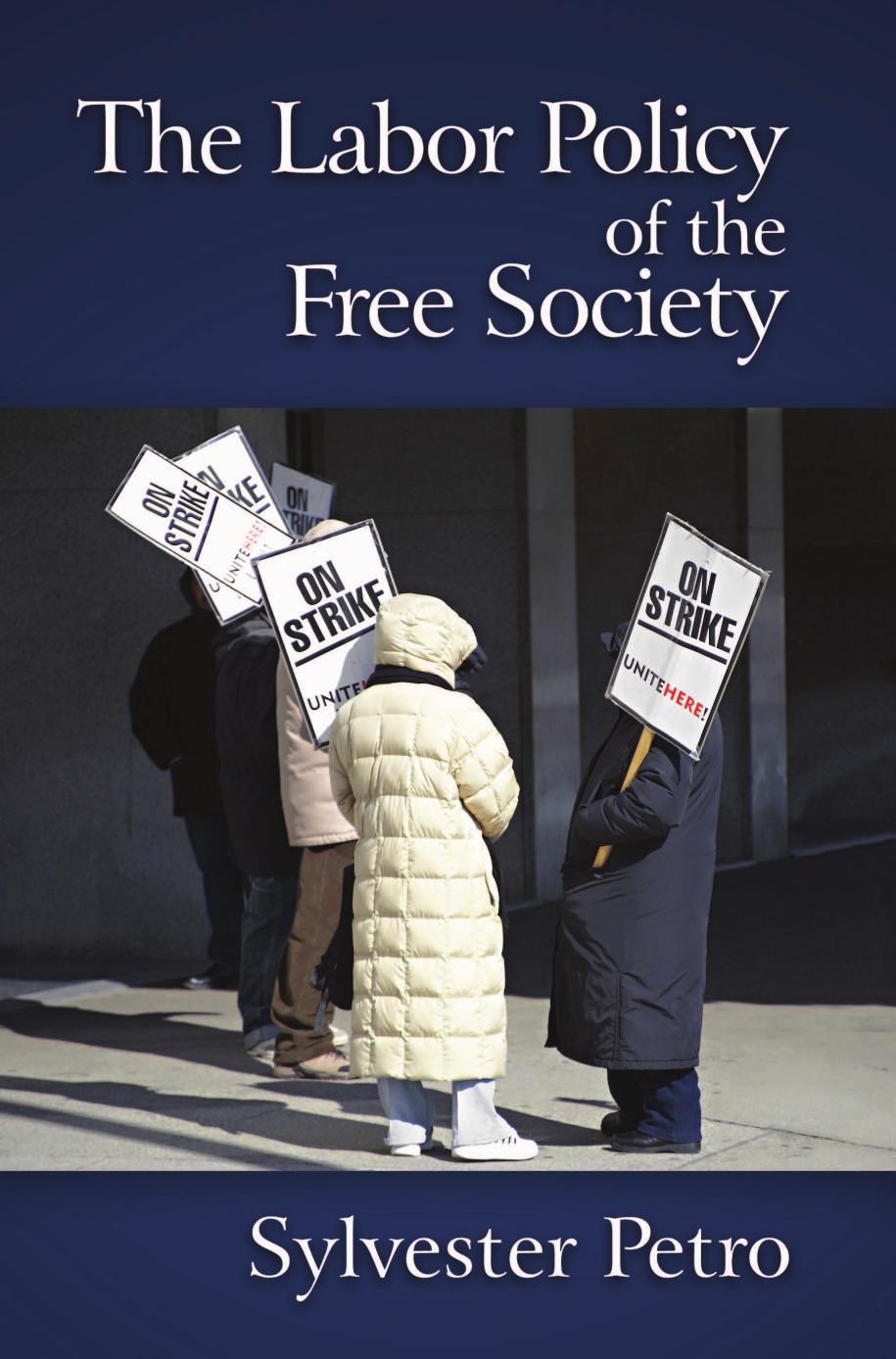The Labor Policy of the Free Society by Sylvester Petro

Author:Sylvester Petro [Sylvester Petro]
Language: eng
Format: epub, pdf
ISBN: 978-1-6101-6276-0
Publisher: The Ronald Press Company
Published: 1957-11-06T16:00:00+00:00
Chapter 12
COLLECTIVE BARGAINING, THE LAW, AND THE FREE MARKET
Law in the United States today is not concerned as a general rule with establishing the exact wages and conditions of employment of the working population. In regard to the large number of workers whose wages and working conditions are established by means of direct negotiations between them and their employers, without the intervention of labor unions, the law is relevant, indeed, in only the same general and minimal rule-making way that it applies to all private contracts.
The role of the law is notably different, notably greater, however, in connection with collective bargaining, the process by means of which the wages and working conditions of more than fifteen million workers are directly established and those of an indeterminately larger number indirectly affected. Collective bargaining is a process governed at almost every stage, procedurally and substantively, by a code of laws which stops short only of establishing quantitatively exact wages and conditions of employment.
Law governs the manner in which employee representatives are selected, establishes procedures which unions and employers must follow in the actual process of negotiation, indicates permissible and prohibited subjects of collective bargaining. Perhaps most important of all, it regulates and defines the economic techniques available to and used by unions and employers as means of enforcing their respective bargaining positions. In a somewhat less detailed way, the law also defines the juridical status of the collective agreement and is even concerned, although on a very general level, with the manner in which collective agreements are administered by unions and employers.
Any legal structure can be effectively applied, intelligibly described, or fruitfully understood only in terms of the principles and social goals which determine its content. The more complicated legal structures are the most difficult to apply, to describe, or to understand; and largely for this reason it is both more difficult and more necessary to deal carefully with the principles and goals of a complicated legal structure.
Download
The Labor Policy of the Free Society by Sylvester Petro.pdf
This site does not store any files on its server. We only index and link to content provided by other sites. Please contact the content providers to delete copyright contents if any and email us, we'll remove relevant links or contents immediately.
The Brazilian Economy since the Great Financial Crisis of 20072008 by Philip Arestis Carolina Troncoso Baltar & Daniela Magalhães Prates(133831)
International Integration of the Brazilian Economy by Elias C. Grivoyannis(110233)
The Art of Coaching by Elena Aguilar(53194)
Flexible Working by Dale Gemma;(23285)
How to Stop Living Paycheck to Paycheck by Avery Breyer(19719)
The Acquirer's Multiple: How the Billionaire Contrarians of Deep Value Beat the Market by Tobias Carlisle(12313)
Thinking, Fast and Slow by Kahneman Daniel(12267)
The Radium Girls by Kate Moore(12018)
The Art of Thinking Clearly by Rolf Dobelli(10455)
Hit Refresh by Satya Nadella(9126)
The Compound Effect by Darren Hardy(8949)
Tools of Titans by Timothy Ferriss(8368)
Atomic Habits: Tiny Changes, Remarkable Results by James Clear(8326)
Turbulence by E. J. Noyes(8040)
A Court of Wings and Ruin by Sarah J. Maas(7821)
Change Your Questions, Change Your Life by Marilee Adams(7760)
Nudge - Improving Decisions about Health, Wealth, and Happiness by Thaler Sunstein(7693)
How to Be a Bawse: A Guide to Conquering Life by Lilly Singh(7472)
Win Bigly by Scott Adams(7184)
